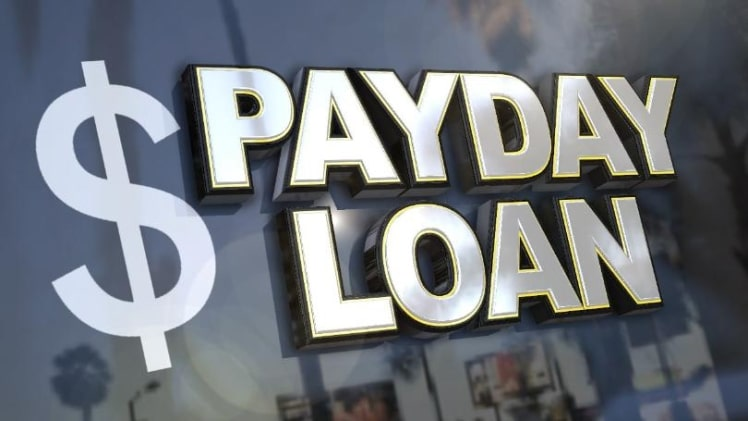Are you considering taking out a loan to deal with an unexpected expense? With so many different types of loans available, deciding which is most appropriate for your needs can be overwhelming. Payday and installment loans are two of the most commonly used types of consumer credit, but significant differences could impact your decision as to which type of loan best meets your needs.
In this blog post, we’ll explore the particulars of payday and installment loans so that you can make an informed choice about the right type of loan for you.
Payday Loans vs. Installment Loans at a Glance
Payday loans and installment loans both provide borrowers with quick access to cash, but some key distinctions between them should be taken into consideration when deciding which type of loan is most appropriate for your needs.
Payday loans are short-term financing solutions to help cover emergencies such as medical bills or car repairs. They are usually due in full by your next payday and typically require the borrower to provide a post-dated check or authorization for direct debit from their checking account on the repayment date. On the other hand, installment loans are long-term solutions, such as mortgages or car loans, that are paid back in monthly installments over an extended period.
When it comes to borrowing amounts, payday loans generally have a smaller borrowing limit than installment loans. Payday loans typically range from $100 to $1,000, while installment loans may increase to $10,000 or more. On the other hand, the repayment terms for a payday loan are usually much shorter than those of an installment loan. Typically, borrowers have only two to four weeks to repay a payday loan, while installment loans may have repayment periods of up to five years.
Payday Loans
Payday loans are short-term, unsecured financing due in full on your next payday. As mentioned above, the loan amount ranges from $100 to $1,000 and usually requires the borrower to provide a post-dated check or authorize a direct debit from their checking account on the repayment date.
Primary Advantages of Payday Loans
Quick access to cash
The application process for a payday loan is usually much shorter than an installment loan. This means you can have cash in hand quickly, often within 24 hours.
Easier to qualify
Since payday loans are short-term financing solutions, lenders are often more willing to lend money to those with less-than-perfect credit. This makes it easier for people who don’t have a high credit score to get the funds they need in an emergency.
Most borrowers can borrow without collateral.
Unlike installment loans, most payday lenders don’t require collateral to lend money. This makes payday loans a great option for those who don’t have any assets that they can use as security for the loan.
No need to wait for approval
Since the approval process for a payday loan is shorter than with an installment loan, you don’t have to wait for the approval process before you can get access to your funds. This makes it an ideal solution if you need money quickly and don’t want to wait around for a decision from the bank.
Flexible repayment terms
Payday loans are usually due in full by your next payday, but many lenders offer the option to extend the repayment date if needed. This can give you more time to gather the funds you need for repayment.
New credit history is optional.
Since payday loans are short-term financing solutions, lenders don’t typically require a credit check before approving your loan. This means no new credit lines will be established, and nothing will be reported to the credit bureaus.
No prepayment penalty
If you can repay your loan sooner than expected, most payday lenders won’t charge a fee or penalty. This allows you to save on interest by paying off the loan earlier.
Lower interest rates
Unlike installment loans, payday loans often have substantially lower interest rates, making them more cost-effective over time. Thus, They are a desirable choice for people who require cash immediately but want to avoid paying high costs.
Requirements To Apply for a Payday Loan
To apply for a payday loan, you must meet certain requirements. Generally, you must be at least 18 years old and have a valid government-issued ID or Social Security number. You must also provide proof of income, such as a recent pay stub or bank statement. Additionally, some lenders may require that you have an active checking account to be approved for the loan.
Installment Loans
As mentioned above, installment loans are long-term financing solutions paid back in monthly installments over an extended period. They can range from $1,000 to $10,000 or more and come with fixed rates and terms.
Primary Advantages of Installment Loans
Flexible repayment terms
Installment loans come with fixed rates and terms, making them a more reliable option than payday loans. Borrowers have up to five years to repay the loan in full.
Quick access to cash
The approval process for installment loans is usually much quicker than other types of financing, so you can get the money you need when you need it most.
Higher borrowing limit
The higher borrowing limits on installment loans make them ideal for larger expenses such as home repairs or medical bills.
Lower interest rates
Installment loans typically come with lower interest rates than payday loans, making them a more cost-effective option in the long run.
No collateral required
Like payday loans, installment loans are unsecured financing solutions that don’t require collateral.
No credit check
Many installment loan lenders don’t perform a hard credit check, so you can be approved even if your credit score isn’t up to par.
Lower monthly payments
The longer repayment term of an installment loan means that the monthly payments are lower than those associated with payday loans.
Establishes credit
Taking out an installment loan and making timely payments can help you build or rebuild your credit score.
Requirements To Apply for an Installment Loan
To apply for an installment loan, you must meet certain requirements. Generally, you must be at least 18 years old and have a valid government-issued ID or Social Security number. You must also provide proof of income, such as bank statements and recent pay stubs. Additionally, some lenders may require that you have an active checking account to be approved for the loan.
Alternatives to Payday and Installment Loans
Before applying for a loan, you should consider all options besides payday and installment loans. The most well-liked choice is a credit card. Credit cards can be used for unexpected costs, but it's crucial to remember that if you don't pay off the balance in full each month, they typically have high-interest rates.
If you’d like to avoid taking out a loan altogether, you may want to consider setting up an emergency fund. An emergency fund is a savings account you contribute to each month to cover unexpected expenses. This can help alleviate the need for borrowing in times of crisis and save you money in the long run.
FAQs
Which loan—a payday loan or the installment loan—is preferable?
The answer to this question depends on your individual needs and situation. Payday loans are ideal for smaller expenses, while installment loans are better suited for larger purchases. It is important to consider the repayment length, interest rate, and borrowing limits when deciding which type of loan best meets your needs.
Is a payday loan a type of installment loan?
No, a payday loan is not the same as an installment loan. Payday loans typically have shorter repayment terms and higher interest rates than installment loans. Additionally, they are usually easier to qualify for and have much lower borrowing limits.
What is a disadvantage of a payday loan or installment loan?
One main disadvantage of payday and installment loans is their high-interest rate. Borrowers may need help to keep up with payments if they have taken out a loan with a long repayment term.
Conclusion
Payday and installment loans are two of the most common types of consumer credit. While they offer quick access to funds, key differences may impact your decision as to which loan type is right for you. It is important to consider the repayment terms, interest rates, borrowing limits, and requirements before applying for any loan. Alternatively, financing solutions, such as credit cards and emergency funds, may be better suited to your needs. Ultimately, the type of loan you choose is up to you, but it is important to make an informed decision about what best meets your financial goals.




